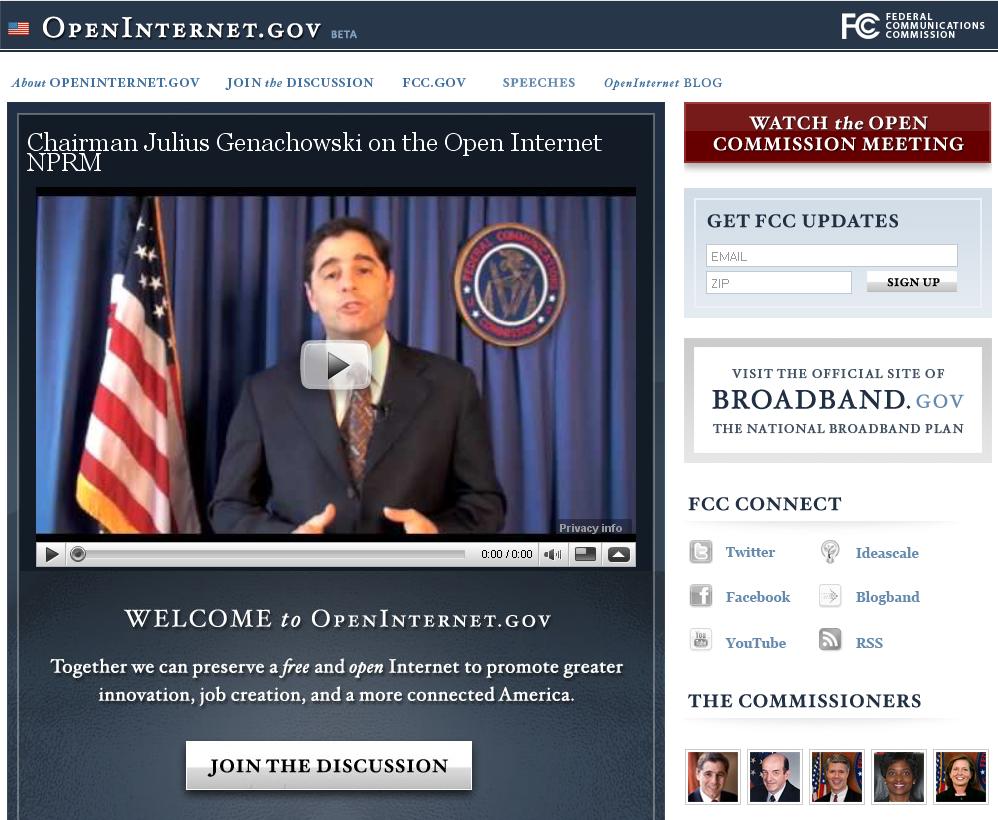FCC Expands its Web Presence
WASHINGTON: The FCC hawked its new Web presence today with what it called “easy-to-use, interactive, collaborative... Web 2.0 applications.” The idea is to make it simple for people to weigh in on the commission’s proposed network neutrality rules. The effort amounts to the launch of another Web site where folks can register and post comments, categorically tag them, respond to others and search for most responses or most recent. It’s a bit like Digg in a starched shirt and a striped tie.
The site, OpenInternet.gov, was launched last week and remains in beta. The comment forum is the main feature. It’s powered by a rating technology from IdeaScale that allows people to vote on comments, then ranks them accordingly. There’s also an associated open meeting site, but no link to it on the front page. There is a link the companion Broadband.gov site, which explains the motivation for such a site and features a calendar of field hearings on the fed’s plan to create nationwide wireless broadband.
The related blog reads like minutes from an FCC meeting. It accepts comments as well, all of which, along with the main forum, will become part of the FCC’s official public record.
The traditional comment channel, the FCC’s Electronic Comment Filing System, was supposedly relaunched in a Vers. 2, though it appears as abstruse is the original. It’s still best to know details about a proceeding to find it. A keyword search for “indecency” brings up 1,980 documents, though unlike the previous system, they do appear to be in reverse chronological order.
One final addition is the beta FCC Live site, where meetings, forums, speeches and other events are A/V streamed. The FCC said its October meeting had a 150 percent jump in viewers on the Web compared to earlier meetings, but the issue under consideration was network neutrality and not universal service fees.
Finally, OpenInternet.gov islinkable to social networking sites like Facebook, YouTube and Twitter. The FCC said it now has 90,000 followers on Twitter, where it most recently tweeted, “All comments submitted on Open Internet Rulemaking will be included in the public record. Tell us your thoughts.”

The professional video industry's #1 source for news, trends and product and tech information. Sign up below.
